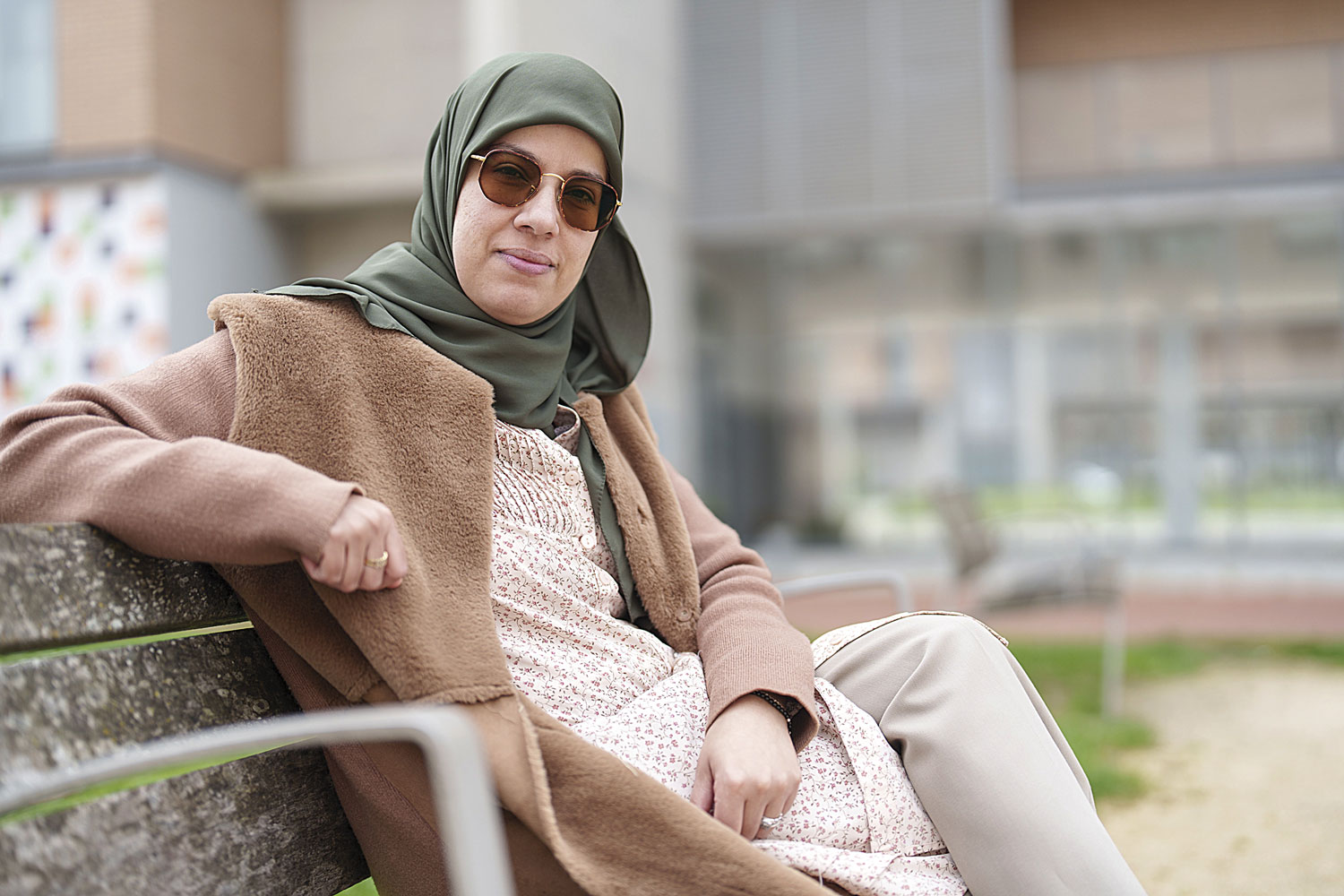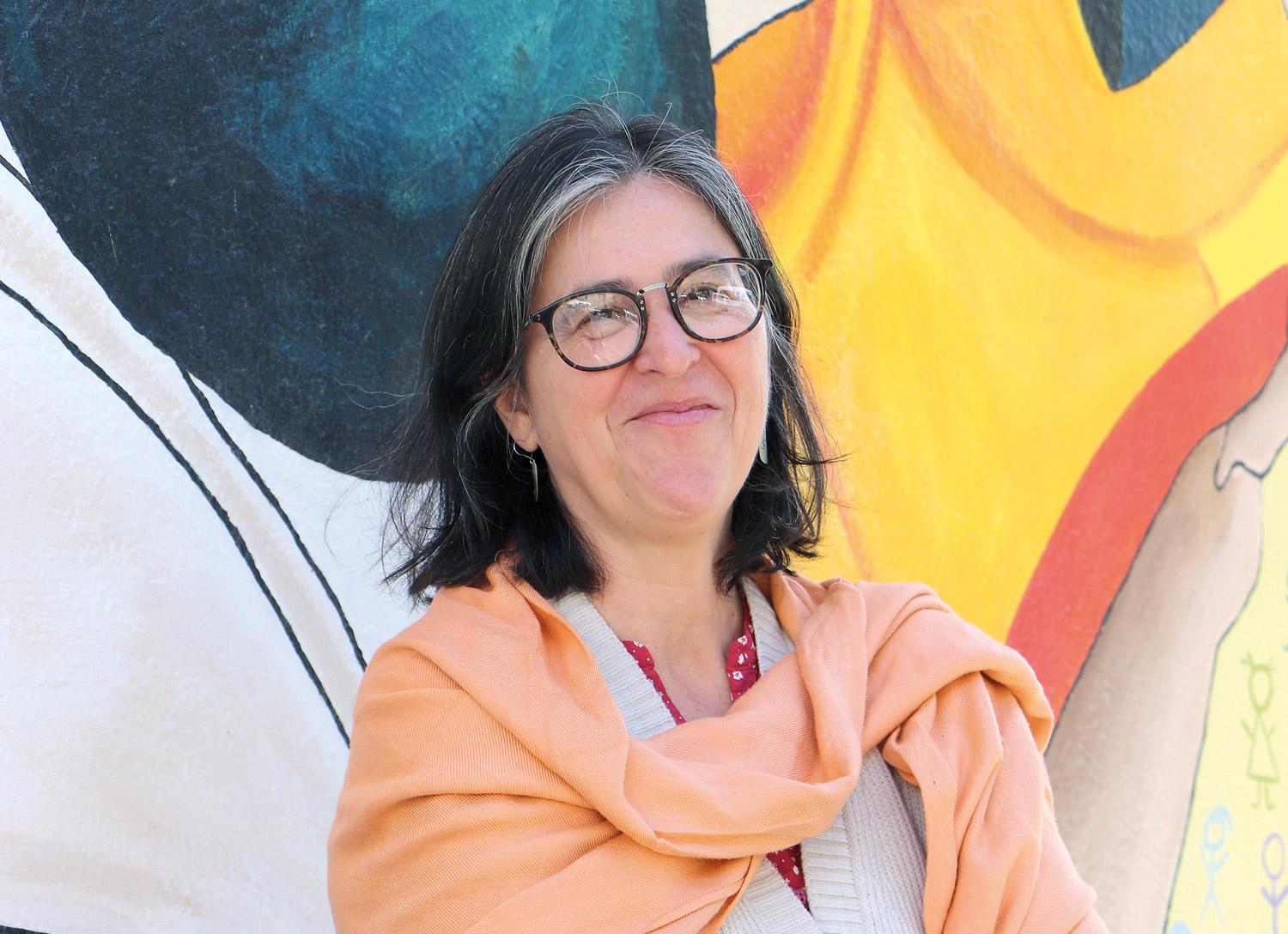Minority languages: review of emerging discourses
- On April 23, the Basque Socio-linguistic Day 2024 was held in Vitoria-Gasteiz, organized by the Socio-linguistic Cluster. In recent years they have focused on the speeches that have been shown for and against Euskera and Catalan. Around the Basque country, Onintza Legorburu, Xan Aire and Mikel Perua participated, and Avel-li Flores worked emergent discourses in favor of Catalan.

Onintza Legorburu, member of Emun: The “politicized” Basque by the feminist movement and the young socialists
Legorburu committed under the title Discourses beyond ethnicity. In the last ten years he chose and reviewed various discourses that have been improving and improving in favor of the Basque country. He cultivated those who go beyond ethnicity, that is, those who “outnumber the two nationalisms”.
He first spoke of the discourse that today is in the direction of the “Basque for all”. He has highlighted and recalled the most powerful speech he has had: the discourse that centred national identity. Legorburu explains that this is a discourse with shortcomings and that in the sphere of Basque culture the desire for change of discourse is perceived. A broader identity is proposed: Euskera belongs to all, we want to depoliticize Euskera (at least leave the scheme of political parties), we want to spread Euskera. Elements such as coexistence, diversity and justice have been put at the base. Legorburu has exhausted the discourse based on national identity, but has made it clear that the citizens are still based on that discourse, that is, if we ask many citizens why they do so in Basque, the answer is “because I am Basque”.
Secondly, although it did not focus on Euskera, it took into account the social movements that in recent years have looked a lot at Euskera. He mentioned two: the feminist movement and the movement of young socialists.
Legorburu explained that the feminist movement has made an inverse contribution to the proposal of Basque culture, that is, it says that language must be repoliticized, focusing on intersectionality, that language also has its place in the network of power relations. The feminist movement places the discourse in favor of the Basque country in the parameters of social justice, that is, anyone who believes in social justice should assume the linguistic question.
Regarding the socialist movement, he said that they have two monographs centered on the Basque. This youth movement has brought class to readings, class is a category of analysis. Legorburu said that they place Euskera as an element of opposition, against the norm. Regarding the class, he added that there is something researched and thought about.
Finally, he wanted to look at the socioeconomic sphere. Legorburu asks what the Basque plans have contributed to the concept of “competitiveness” used in the business and economic field, and what the Basque plans can contribute from now on. He adds that there is no discourse on the table, which they are experiencing, but that the objective is to continue to reflect on what else the Basque plans can contribute.
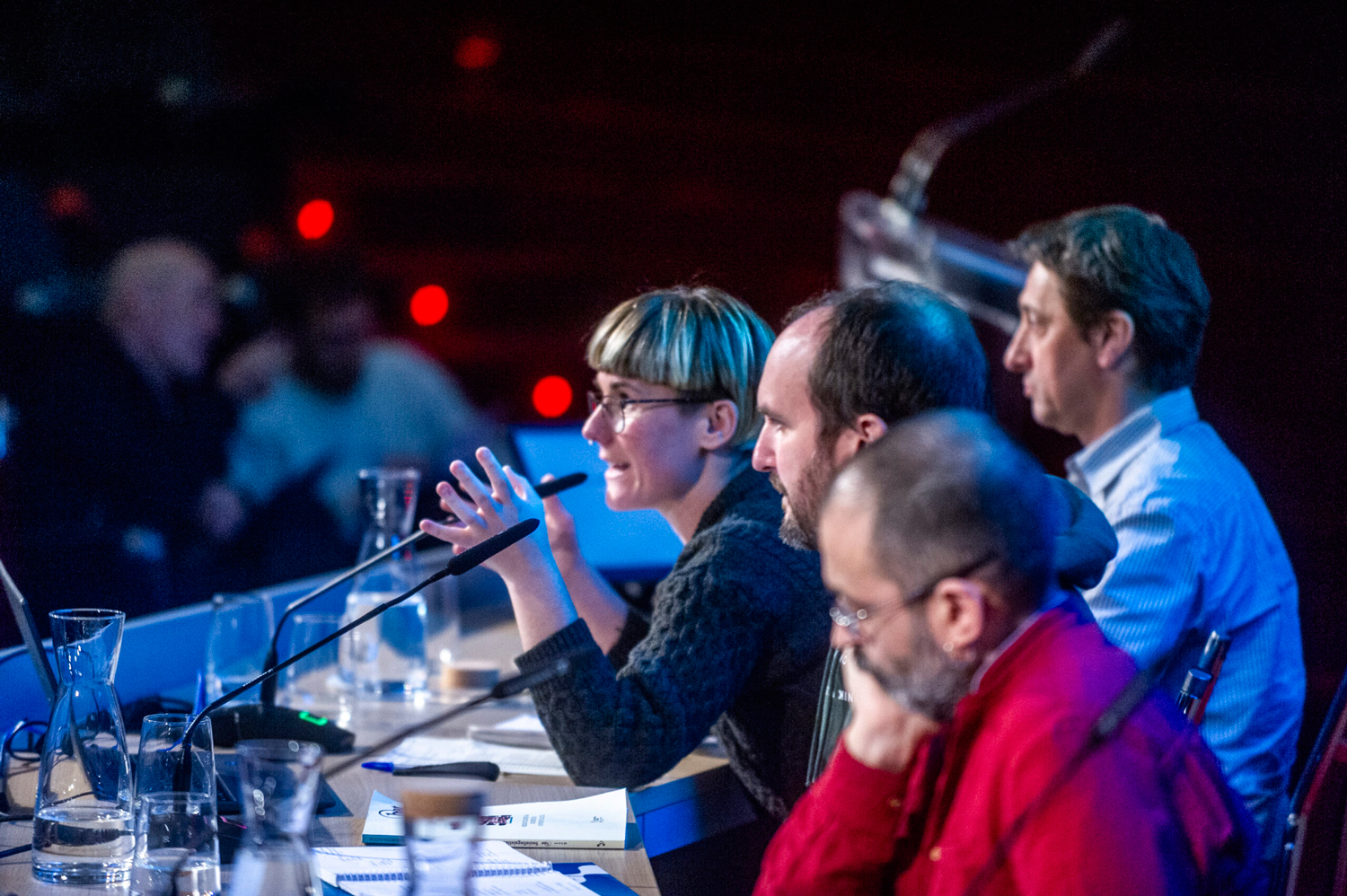
Xan Aire, member of Plazara: Self-designate to not do others
Xan Aire told what was gathered in the days organized between Garide and the UPV in July 2023. It brought together members of international linguistic communities, including Euskaldunes. The participants agreed on the need to redefine the subject, “now we are defined by the others,” Aire said. He recalled that in the “best of cases” we are called minority languages, which on other occasions use the “minority” language. The participants of the American linguistic communities reflected: “Maybe we have to define ourselves differently here and in the world,” and Aire added: “It is not optimistic or pessimistic, but how the linguistic community defines itself, what ambition it has, what it has.” And so they agreed on a self-definition: "Linguistic communities of the world we live in." Without forgetting the precariousness of several languages, “we are saying that we are moving, placing languages in the world, conquering spaces with revitalization,” Air said. He added, “We believe that we are reviving, we will believe our young people and the world will have to believe that we are reviving.”
Mikel Peruena, Berria journalist: Privileges, imposition, and others
The Peruvian government departed from the decisions recently taken in the courts against Euskera. They are concerned because in the CAV, in Navarre and in the Northern Basque Country attitudes and discourses against the Basque country are already more evident. In CAPV they are scarce. Peru’s focus was on recent events and new discourses (or elements that can serve for new discourses), not so new.
He raised on the table surprises that lie below the speeches, which then contribute to the composition of the speeches, to which he began to throw. For example, “it cannot be against the Basque Country,” the surprise said. In addition, “Euskera is a heritage”, “it is difficult”, “rare”, “to study expensive”, “to learn well is impossible”, “to live here it is not necessary”, “you can be in favor of the Basque without knowing Euskera”.
Another concept he mentioned is that of “protecting the Basque country”. Peru says: “What does this concept mean? How far should we protect ourselves and from where is taxation? If there is passive membership of the Basque Country, it is a question of endangering personal comfort. That is why now they say that we are asking them too much, that they prefer to resort than to learn Basque.” It was said in Peru that we are going to see the path that those attitudes follow, because those speeches can have a diffusion, and more than a quantity, the risk is the speaker.
And he addressed the concept of “taxation” he had already mentioned. He clarified that this is not a new term. He recalled the demonstration in Pamplona in 2018. On that occasion, some 15,000 demonstrators met, demonstrating that they were not against the Basque people, but against the imposition of the Basque people and the linguistic policies being pursued. The Pamplona protesters said they respect the Basque, but they are also “injecting” the Basque. And there are other concepts associated with these expressions: exclusion, freedom of choice of language... Peru said: “When the administration begins to manage the language, the right has removed the imposition on the language”. Another extreme, due to the tendency he has perceived among several students and young people, is the belief that the Basque is imposing, that is, that among the Basques we also believe that the other is being forced when we do so in Basque.
Another element is the “socio-linguistic reality”, which basically says that if the Basque country is not used so much, it does not ask so much. Do not ask for more than you have to ask. And in relation to that excessively demanded feeling, he spoke of “privilege” and “exclusion.” He used as an example the events that occurred in the municipalities of the Egüés Valley and Orkoien: if services are offered in Basque, the Castilian speaking people are left without service. That is, it involves the risk that what is done in Euskera will be considered exclusive. And another term is “segregation”, that is, the effort to link the Basques with the elite. Another tendency is for the centres to demand that the Basques meet with the Basques.
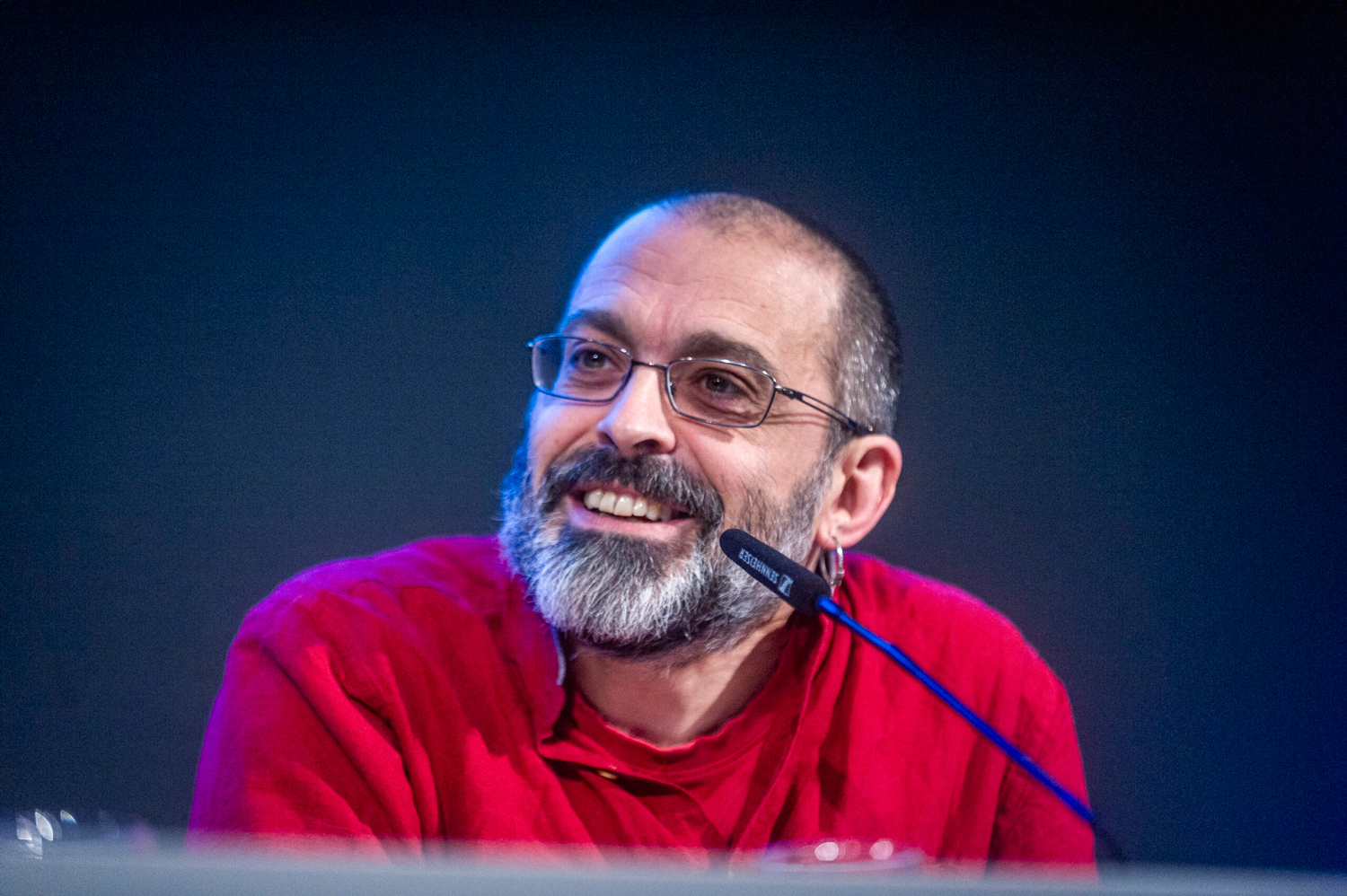
Emerging discourses in minority language in Catalonia
Avel-li Flors, professor and researcher at the University of Barcelona, spoke of several speeches in favour of Catalan. He said that they are not consolidated, that they do not know where they are going to arrive and what protection they will have.
First, Flors developed the opinion sector’s proposal that talks about renationalisation: the Catalan sovereign process has not succeeded, and to build the nation, language policies must be based on language. With this, either visibly or covertly, it is being said that Catalan nationalism is not now in a position to reach society as a whole and the linguistic community must be protected, the linguistic community must be put at the centre. In that community would also be the Catalans who do not have the first language. According to this view, there are several linguistic communities. In education they have begun to talk about the organization of two networks, that is, the distribution by linguistic models, a line completely in Catalan. Flors commented that they are now geared towards the system of linguistic models that we have in the CAV. In his speech Flors told him so far, but a listener asked him who are the drivers of this idea and so he said, “It’s very new. It's related to independence, it's mostly conservative, it's male. For example, the CUP has not defended this, it is not in favour of two lines in the centres. Clara Ponsatí [the first Board] is involved in creating a new political party. Your proposal is to create two networks of centres. Maybe it's a bait thrown in the air, but it throws it out. The meetings have not said much.”
Secondly, he mentioned the proposal that various women are working from feminism. He mentioned the book Màtria o barbàrie: trenta veus del feminisme català (Editorial Angle). Intersectionality, nation, social class, gender, race, language, etc. work. The book is coordinated by Júlia Ojeda, Anna Punsoda and Marta Roqueta. ARGIA interviewed Júlia Ojeda, a member of Matriotes in February, and addressed this issue: "We lack speeches to deal with the great attacks of globalization." The Catalan researcher indicated that he is still waiting to see where this proposal will come from, which at the moment has not received much.
Thirdly, Sergi Morales and his academic discourse. This researcher uses the concept of “linguistic justice” to legitimize linguistic policies. In other words, linguistic justice must be done, and linguistic policies must aim to achieve this. Monolingual societies set their language preferences and speakers from other languages cannot use theirs.
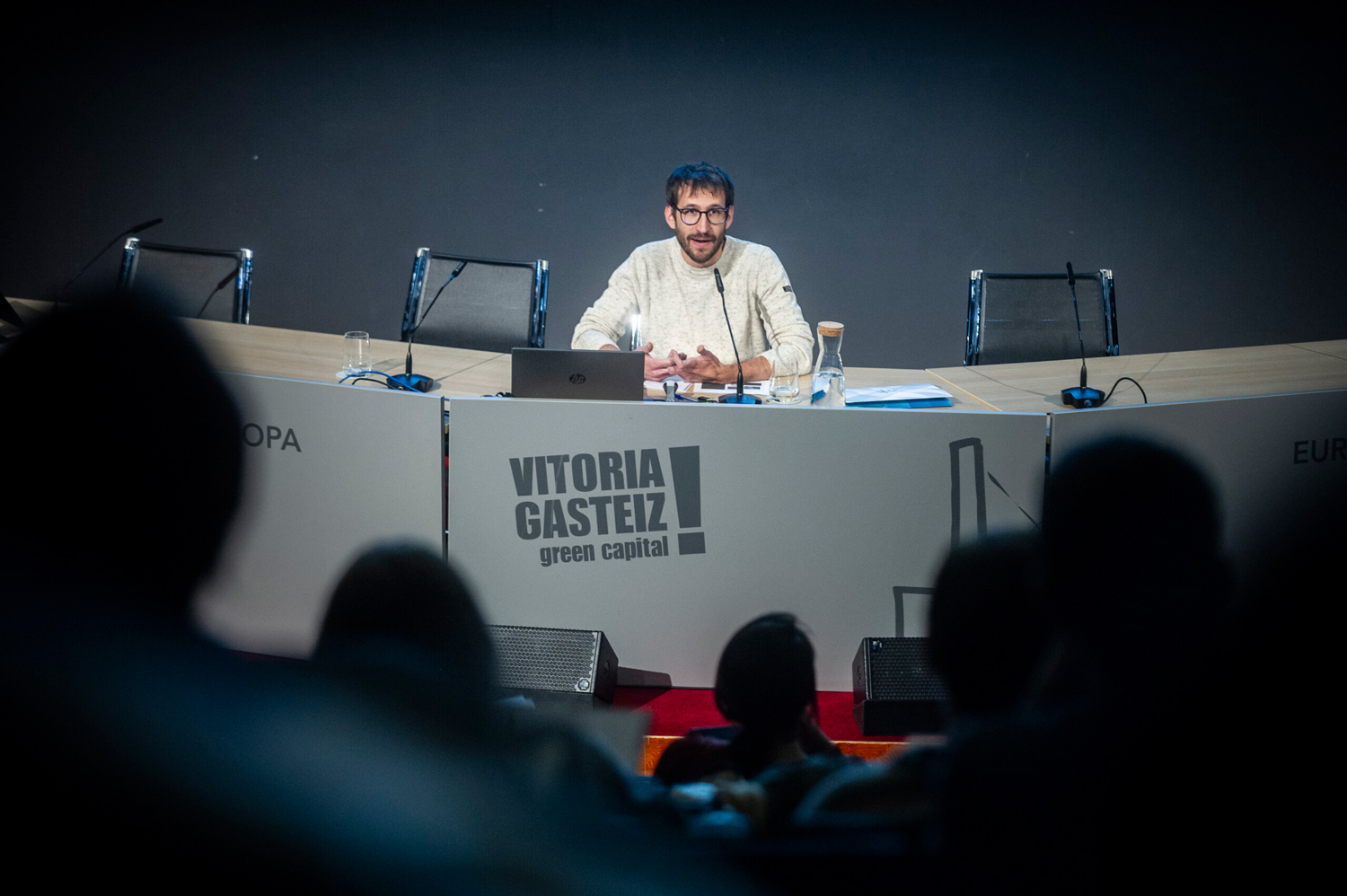
Her daughter learns to play the ukulele. He once acted with Somewhere over the rainbow notes. The author of this version was Israel Kamakawiwo?ole. As you see, Mr Israel’s last name is quite special to us. So special that “Cira, this is not an English surname, maybe behind... [+]
A few years ago, I wrote a little book about Tene Mujika, which is called Udazken Argitan. When I started doing that biographical essay, I met our protagonist today, Mr. Watson Kirkconnell. In 1928, Kirkconnell published a nice book of European Elect anthology, which included... [+]








